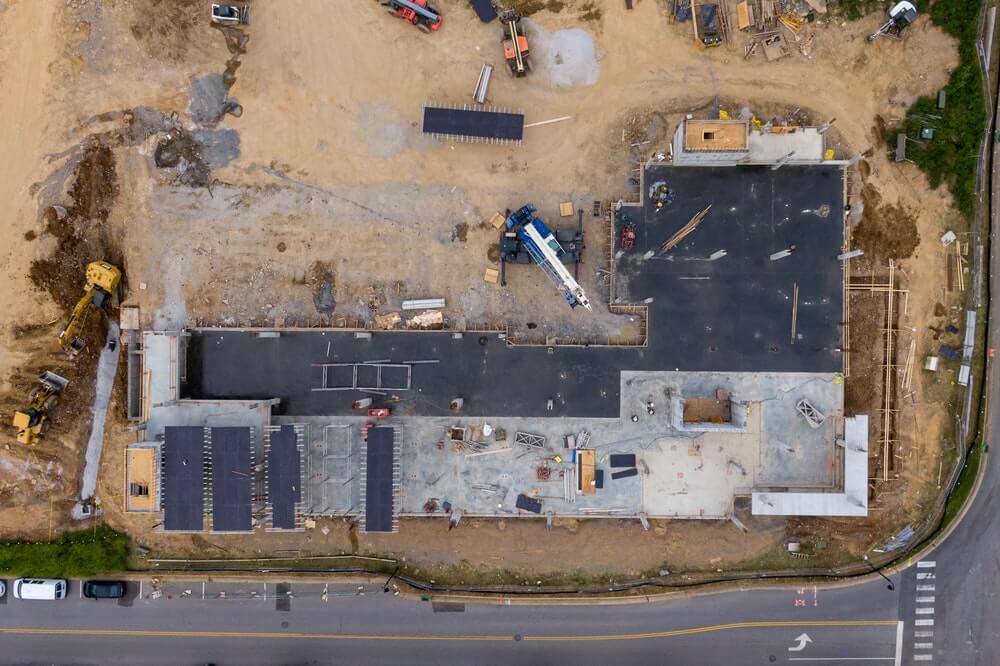Things to Ask Before You Build: Why are Building Permits Important?

Building an attached or detached structure on your property can be a fantastic way of enhancing the value and utility of your space. When expanding living space or adding new buildings to your land, there are several options you can consider. Some of the most popular additions include a new garage, a summer kitchen, a pool house, a guest house and even an outdoor area for entertaining guests.
However, such a grand project will need thorough thinking, and planning should start with checking the regulations. In this blog, we delve into the process of getting building permits and why it’s so important to have them.
What is a Building Permit?
Simply put, a building permit indicates that you have gotten permission from your municipality or local council to build or construct something on your property.
A building permit is not only required when you build something new on your property. You need it when making home improvements that go beyond the cosmetic layer. Most work that involves a change in the structure of a house or the utility networks it has will need a permit.
To get a building permit, you need to get in touch with a building certifier who will assess your project and decide if it complies with the regulations in the Building Code of Australia. A certified surveyor needs to check your plans before building because your addition or modification must be energy-efficient, safe, and accessible.
Besides applying for a building permit, you might also have to get other types of permits, such as those required by local councils, municipalities, housing communities, and more. Regulations and laws might differ from one city to another, so it’s best to work with a local assessor or contractor.
Here are some examples of structures that require a building permit before you start the actual work:
- Retaining walls and landscaping walls
- Pergolas, gazebos, and other permanent detached structures
- Renovation of the bathroom (with significant changes)
- Garages, warehouses, storage units
- Sports courts (especially projects that require sports court excavations)
Thus, it is clear that many projects require regulatory approval, even if they don’t seem too invasive at first glance.
Planning vs Building Permits
In cities like Melbourne, any new buildings or works on residential, commercial, or public property must receive a planning permit first. There are regulations on how you use the land and what parameters are to be applied when building a new structure or modifying an existing one.
Planning Permit
A planning permit is required for various construction works, from building a fence to removing a tree, displaying a sign, or building a structure. For example, in Melbourne, you have to submit documentation to the City of Melbourne, pay a fee, and wait up to 60 days before a decision is made. A planning permit is meant to ensure that land on the territory of Victoria is used properly.
Building Permit
Another permit you will have to get is the actual building permit. It refers to the standards a building or modification must comply with. It must be safe for constructors, inhabitants, passers-by, and other community members. In other words, a building permit shows that your building is up to standard and can be used safely.
What Happens If You Build Without a Permit
While minor issues are generally expected during the lifespan of a structure, high-risk situations should be avoided where possible. High-risk situations include collapsing walls, electrocution, water damage, falling roof pieces and more. Governments seek to prevent these situations from occurring by regulating the building and renovation of residential or commercial spaces. As such, building permits are mandatory to ensure that every new building and major renovation has taken steps to mitigate these risks.
If you build something without a permit, you risk a penalty of up to $75,000 or more, depending on your project. The municipality also has the right to halt your construction work and you can be charged with breaking the law.
What Do I Need to Apply for a Building or Planning Permit?
If you want to start construction work in Melbourne or its surroundings, you must apply for a planning permit and a building permit. You can find the lists of fees corresponding to planning and building permits on the City of Melbourne website.
After you submit the documentation to the City of Melbourne and if you aren’t required to supplement your file with additional papers, you can wait for the Notice of Decision. The municipality usually issues it within 60 days from the moment of application. If you apply via VicSmart, the timeframe is shorter.
A Notice of Decision doesn’t mean you already have a permit, as a review period must pass before the process ends. You can find a list of fees for applying here. You can submit payments via three channels:
- In-person, at the Melbourne Town Hall Administration building.
- By mail, by sending a cheque or money order.
- Online (only for applications submitted online). You will receive a reference number and instructions for payment.
Before submitting your application for a planning or building permit, it’s a good idea to consult an expert regarding bureaucratic procedures and gathering information from officials.
What About Hiring a Contractor?
The process of getting a permit is a lengthy but necessary step before you spend money on construction work. Projects that require a building permit are often complex enough to hire a contractor. If you are working with a contractor, they should be able to handle the entire permit application process and will usually include the necessary fees in their commission.
Our team of experts here at TFR Construction has extensive knowledge of the Melbourne and Australian legislation and the different types of construction work in the area. We work within strict regulations resulting in a safe, energy-efficient, and environmentally responsible completed project.
Don’t hesitate to contact us today if you are planning a construction project! We will be happy to provide a professional opinion on the costs it would involve, what options would be best for you, and how to make sure your project is fully compliant with your local legislation and building codes.
Recent Posts
A Parcel for the Picking – Things to Consider When Buying Land for Your Home
Selecting the proper parcel of land might be challenging but approaching the task with the correct knowledge makes it worthwhile.
Stone Landscaping: Adding Statement Stone and Boulders to Your Landscape
Stone landscaping is low maintenance, sustainable, and extremely versatile. Here is a realistic view of the main pros and cons of stone landscaping.
5 Ways to Beautify Your Sleeper Retaining Walls
In this blog post, we examine how you can combine looks and function with the latest designs of retaining walls available today.
How Sleeper Retaining Walls Can Help with Property Water Drainage Systems
We take a closer look at why retaining walls can be a fantastic solution for redirecting water around the house and protecting your foundation.
What Is a Commercial Contractor?
Contractors who work on commercial buildings have the know-how, expertise, and certifications to handle commercial construction work. But what exactly is a commercial contractor, and do you need one for your next project? Read on to find out if a commercial contractor is right for you.
Recent Posts
A Parcel for the Picking – Things to Consider When Buying Land for Your Home
Selecting the proper parcel of land might be challenging but approaching the task with the correct knowledge makes it worthwhile.
Stone Landscaping: Adding Statement Stone and Boulders to Your Landscape
Stone landscaping is low maintenance, sustainable, and extremely versatile. Here is a realistic view of the main pros and cons of stone landscaping.
5 Ways to Beautify Your Sleeper Retaining Walls
In this blog post, we examine how you can combine looks and function with the latest designs of retaining walls available today.
How Sleeper Retaining Walls Can Help with Property Water Drainage Systems
We take a closer look at why retaining walls can be a fantastic solution for redirecting water around the house and protecting your foundation.
What Is a Commercial Contractor?
Contractors who work on commercial buildings have the know-how, expertise, and certifications to handle commercial construction work. But what exactly is a commercial contractor, and do you need one for your next project? Read on to find out if a commercial contractor is right for you.





